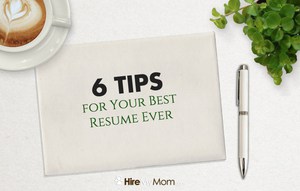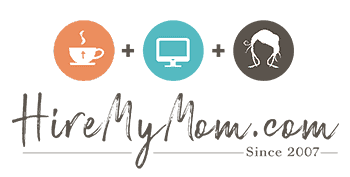6 Tips for Your Best Resume Ever

A high quality resume is a daunting task, but it’s completely necessary if you’re entering the job search market. Traditional resumes are good, but what can you do to really stand out?
To make the best use of your time and application efforts, read along for some best practices in creating your best resume yet.
Descriptions
Rich, descriptive wording is so important in your resume! Don’t shy away from language that really describes what you did, all while incorporating necessary keywords that fit the job listing. Another useful description comes in the form of data. If you worked at a job position that resulted in a specific outcome or quantitative result, please include it!
The point of your resume is to show the hiring manager what you can do for them, and proven results really up the ante for impressing your potential employer. Additionally, it’s much more helpful than filler content that really doesn’t show results.
Uniqueness
Resumes are not one size fits all! Don’t be afraid to show your creative side and make yourself stand out. Can you do something fun with the format that still makes your resume readable but exciting? Is there a beautiful, clear font that stands out? For certain positions, video resumes and social media posts as an application might be par for the course.
Truly look into the job posting and see what they’re searching for. If it’s a much more traditional job, it might be best to stand out with accomplishments only, but if the company is a bit more fun or seeking creativity, this is your time to shine! Don’t hesitate to try something new – it might just get the right kind of attention and a new job position for you.
Thorough
A good resume is very thorough. Be sure to cover every recent, relevant position that might help you obtain the job. Also be sure to offer (or simply include) 2-3 quality references and fill in any gaps in employment to avoid questioning or suspicion.
Covering your bases on your resume is a great way to show that you’re thorough in business and life, as well as giving you the opportunity to truly scan your brain and memory for past experiences that fit the job posting bill.
Cover Letter
Your cover letter is typically the first piece of communication that the employer sees! Take the time to create a solid, persuasive letter in your personal voice. Of course it’s necessary to use correct grammar, spelling, and so on, but you can absolutely speak in your unique voice.
Your cover letter should be short but informative, including bullet points as to why you’re a great fit for the job and company, as well as why you’re interested in the job. Focus it on the benefits to the new company and why they need to hire you. Again, keep it short and to the point – a couple paragraphs and 4-6 bullets should do the trick!
Importance
Put your work and relevant experience in order of importance when listing them on your resume. These days, your qualifications don’t necessarily need to be chronological. It’s important to show the hiring manager what’s most relevant right off the bat, as most simply scan for applicable experience. Show off your best assets first and foremost!
Stand out
Make yourself stand out and don’t sell yourself short! It’s always important to be incredibly truthful, but be sure to not get too humble and leave out important information. When it gets right down to it, include anything that is helpful and relevant to the job position, and do it in a way that allows you to shine!
Creating a resume is a bit of a task, but it’s one that is necessary in today’s job market. Spend some time making yourself stand out, all while following the new “rules” of resume creation – be yourself, be unique, be thorough!
